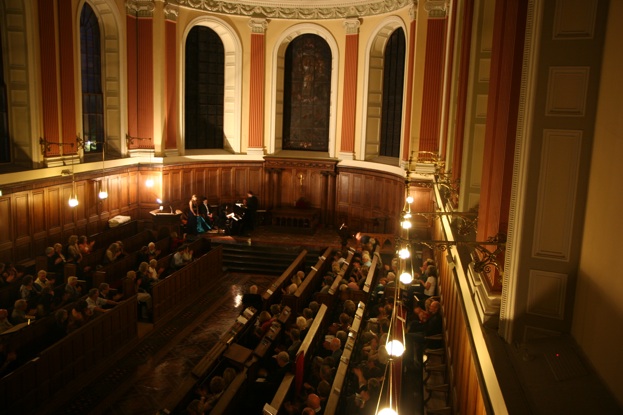The 2016 census is set to take place in a few weeks’ time. In essence a broad overview of the country and its inhabitants, the census is an attempt to accurately determine and capture the diversity of the Irish people. Along with the basics such as population size and cultural background, it will also determine the religious makeup of the State. In the 2011 census, 84 per cent of Irish people categorised themselves as Catholic, although a poll conducted a year later by the polling group WIN-Gallup International concluded that only 47 per cent of Irish people placed themselves in the same bracket. The inconsistency of these figures may seem to be a non-issue for some, but in the long run its actually significant.
We live in a country where the Catholic Church continues to have a privileged position in society, even though support for it and what it stands for has fallen dramatically over the last 20 years. Though it may only be putting a mark in a box, ticking “no religion” could be an important step in progressing towards a pluralist republic. People who no longer consider themselves religious should accurately represent this fact on April 24th.
The passing of May’s referendum was undoubtedly a statement by Irish people – particularly young Irish people – that we want to live in a country that values the equality of every citizen over religious dogma. The unsuccessful attempts by the Church to deny equal marriage are indications of an institution in crisis. It clearly no longer maintains the same control over the nation’s moral compass that it once had. However, it continues to hold a special position in our society, in our public institutions and in our Constitution.
Over 90 per cent of our State-funded primary schools are under the patronage of the Catholic Church, meaning the Church owns the land and governs the school
Cases where non-baptised children are denied a place in their local school in circumstances of over-subscription are far too frequent. At present, over 90 per cent of our State-funded primary schools are under the patronage of the Catholic Church, meaning the Church owns the land and governs the school. Although the same level of indoctrination no longer exists as it once did, there is nevertheless clear Catholic bias in the day-to-day goings-on of these schools. Like myself, most people who attended such schools will remember the constant recitation of prayers – in the morning, before lunch and at the end of the day. Religion is taught as fact, something which is particularly problematic for young children. For a six-year-old, a Nazarene rising from the dead some 2,000 years ago seems to be just as factually accurate as two plus two equals four.
The only option for parents who don’t want their children to receive such an education is to have them opt out of religion classes. This alienates children and is also not feasible in schools which lack the resources to accommodate such requests. Children may then have to remain in the classroom while religion classes take place, ultimately ignoring the wishes of parents. In the years of communion and confirmation, where a huge amount of school time is dedicated to preparation for these sacraments, this problem is vastly magnified.
Large-scale divestment of patronage is the only solution to these issues. State-funded education should accommodate all beliefs and backgrounds, teaching all main religions and beliefs on an equal footing – including atheism and agnosticism. I do agree that if a parent wants their son or daughter to attend a faith-based school then they should have that option. But the effective monopoly held by religious institutions on education funded by the tax-payer is simply unjust.
Hospitals and other healthcare facilities also continue to be influenced by the beliefs of religious orders. In Bunreacht na hÉireann there are even clauses that see offences of blasphemy as punishable before the law. Our constitution also continues to recognise that “by her life within the home, woman gives to the State a support without which the common good cannot be achieved” – a hangover from our conservative Catholic past that is yet to be amended.
As a country we are changing for the better and we need our public institutions and laws to be representative of this change
The bizarre reality is that all of these things which restrict us from being a more pluralistic and secular society remain, irrespective of the fact that people’s association with the Church is diminishing year on year. Attendance at mass continues to fall. An IPsos/MBRI poll conducted for the Irish Times in 2012 showed that not even 34 per cent of those who identify as Catholics attend mass on a regular basis. Campaigns which go against the teachings of the Church, such as repealing the eighth amendment, also continue to gain momentum. As a country we are changing for the better and we need our public institutions and laws to be representative of this change.
Ticking a box on a statistics sheet may seem trivial, but it puts pressure on policy makers and could lead to tangible reform. While the census is a factual survey and not a vehicle for political change, people should nevertheless be honest when filling it out. I was baptised and confirmed a Catholic, but that no longer makes me one. Decisions I effectively had no say in when I was a child do not dictate what I can classify myself as now. For others in the same boat, I would urge you to tick no. Not only will it make for a more accurate survey but it could also help to bring about the substantial change that this country so badly needs.







